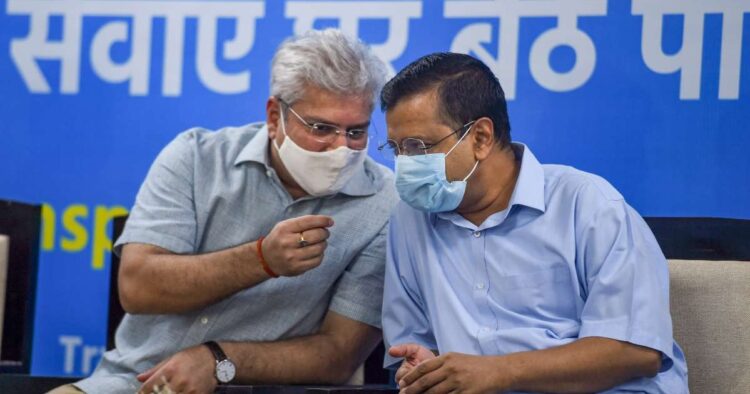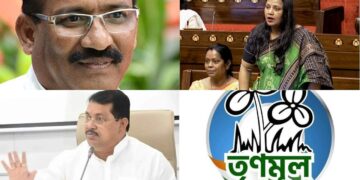Delhi’s Transport, Home, and Law Minister, Kailash Gahlot, who also serves as an Aam Aadmi Party (AAP) MLA representing Najafgarh, has been summoned by the Enforcement Directorate (ED) in connection with a case related to the Delhi government’s excise policy for the fiscal year 2021-22. Sources reveal that the case involves allegations of corruption and money laundering in the formulation and implementation of the said policy, which was subsequently annulled.
The Enforcement Directorate’s action follows the recent arrest of Chief Minister Arvind Kejriwal in the same case. The federal agency is reportedly investigating the matter under the Prevention of Money Laundering Act (PMLA). Gahlot, aged 49, has been called upon to provide his statement and undergo questioning regarding his involvement in the alleged irregularities surrounding the excise policy.
The excise policy in question, devised and executed by the Delhi government, has faced scrutiny over accusations of impropriety and financial misconduct. The decision to scrap the policy added to the controversy, prompting further inquiries into the matter by investigative agencies.
Kailash Gahlot’s summons by the Enforcement Directorate comes amidst heightened political tensions, as the AAP, led by Arvind Kejriwal, grapples with the fallout from the ongoing investigation. Gahlot’s role as a senior minister within the Delhi government underscores the significance of his involvement in the case and raises questions about the administration’s handling of regulatory affairs.
The AAP, known for its anti-corruption stance and promises of clean governance, now finds itself embroiled in a legal battle that threatens to tarnish its reputation. With key figures within the party facing scrutiny and legal action, the political landscape in Delhi is witnessing upheaval, with ramifications likely to extend beyond the immediate case.
As Kailash Gahlot prepares to face questioning by the Enforcement Directorate, the spotlight remains firmly fixed on the AAP and its leaders. The outcome of the investigation and subsequent legal proceedings will not only shape the future of those involved but also have broader implications for the political dynamics in Delhi and the perception of governance in the national capital.

















Comments